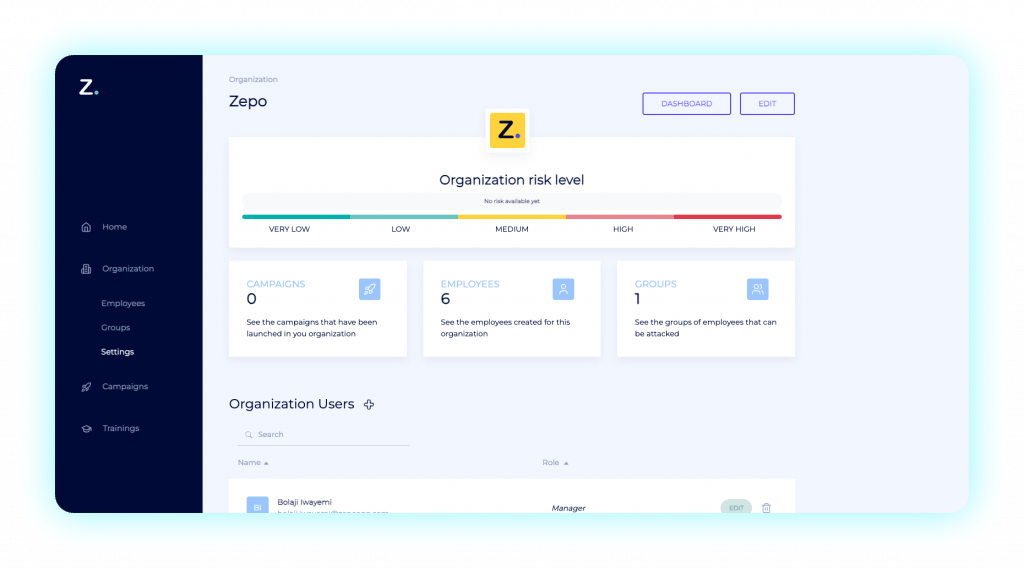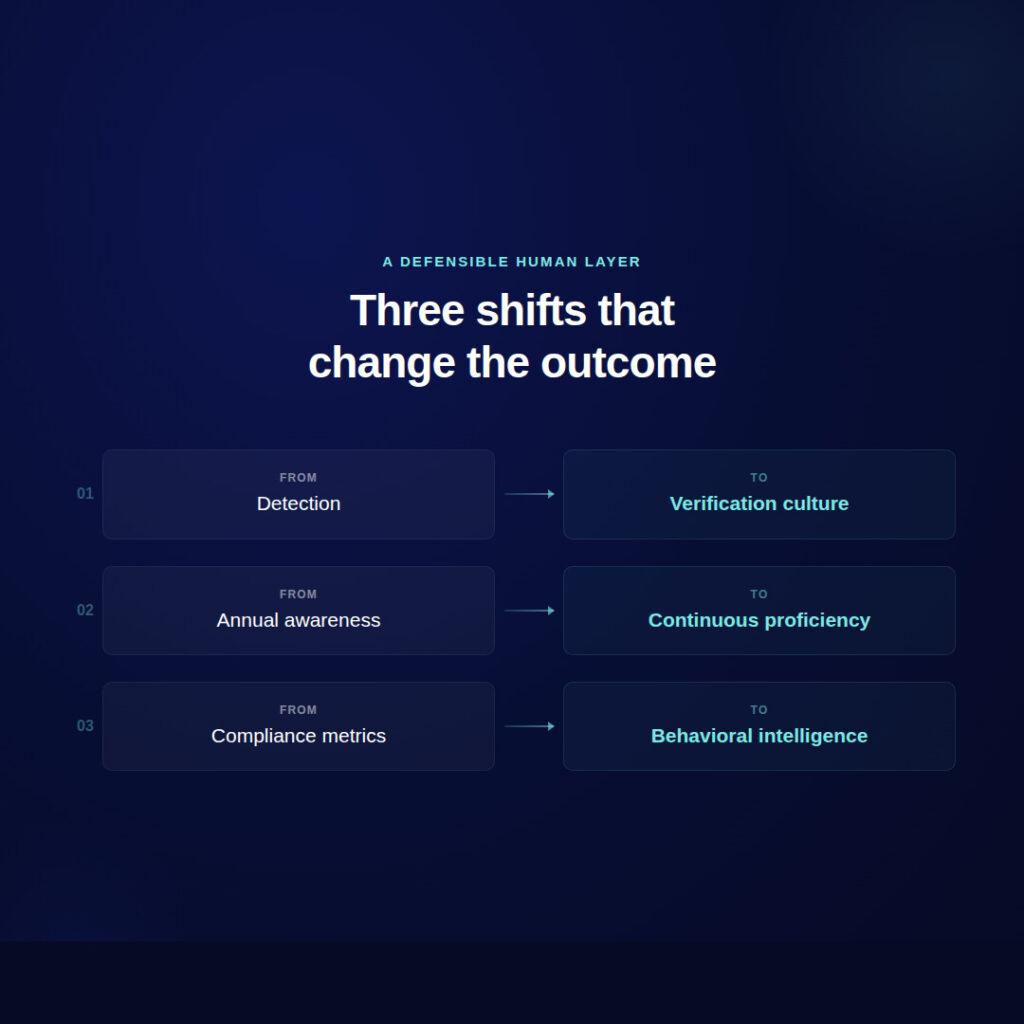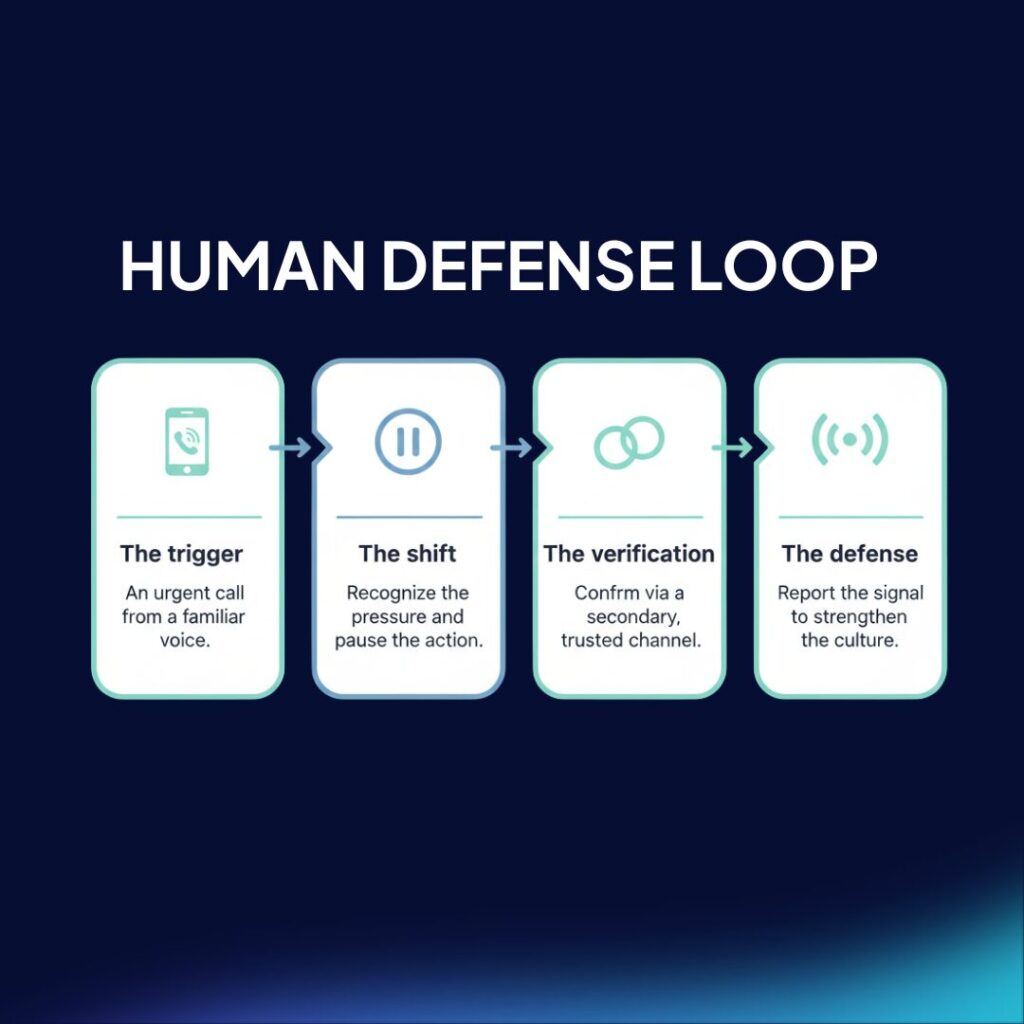From startups to multinational corporations, all businesses face constant cyber threats that can have a devastating impact on their operations and reputation. In this article, we will explore the importance of investing in a cybersecurity course for businesses, looking at how these courses address risks and provide you with the tools you need to stay safe in the digital world.
Risks and threats in enterprise cybersecurity. The importance of taking a cybersecurity course for businesses
Cyber threats are varied and increasingly sophisticated. From phishing, malware, and ransomware attacks to more complex forms of social engineering, cybercriminals take every opportunity to exploit vulnerabilities.
These malicious actors can expose sensitive data, disrupt business operations, and even extort money from companies. If companies do not enrol their employees in a cybersecurity course at least once a year, the consequences could be catastrophic.
Password theft is among the most common attacks, which can lead directoly or indirectly to targeting corporate email accounts, BEC onslaughts, and the notorious CEO fraud. These types of threats frequently come via mass mailing, but they can be more targeted.
Threats don’t always result in massive, immediately noticable consequences; ‘carding’ has gained prominence recently, in which cybercriminals hijack their victims’ bank card details with the intention of making small purchases.
In the cybersecurity domain, different types of digital crimes have registered a worrying increase in the first months of this year, breaking the downward trend that had been observed previously.
One of the most frequent problems arises from malicious websites used by cybercriminals who are carrying out phishing campaigns. By sending emails that impersonate trusted institutions, malicious actors seek to obtain personal information from unsuspecting users.
Similarly, electronic scams, known as ‘cyberscams’, and malware downloads, i.e. software that takes control of the victim’s device, have also increased in prevalence in this period.
What are the consequences of not investing in a cybersecurity course for businesses?
Security breaches can have devastating consequences. In addition to data loss and operational disruption, companies also face significant damage to their reputation and customer confidence. Based on data, 375,506 attacks were reported in 2022, 72% more than in 2019.
According to data provided by the insurer Hiscox, during 2021, 64% of companies in Spain opted to make a payment in exchange for the release of their systems after being victims of a ransomware attack, which involves locking data behind an encryption and promising the key in exchange for money.
The average costs associated with these ransomware attacks amounted to €19,400, while the average amount spent by these companies to recover their operations after the attack stood at €10,771. Approximately 47% of the companies that made the payment found themselves facing another cyberattack after paying the ransom.
Ransomware is on the rise; there has been a 20% increase in the number of companies that have agreed to pay a ransom compared to the previous year. However, in the list of leading economies, Spain ranks on the low end of countries affected by this crime. In contrast, in the United States, 84% of companies have made payments to recover their data after being affected by ransomware.
51% of companies that opted to pay the extortion fee for ransomware did so to avoid leaking customer information.
Despite these efforts, 20% experienced data breaches. However, the majority of these (60%) managed to recover all of the affected information, while 23% managed to recover only part of it.
The 6th Hiscox Cyber Preparedness Report reveals that 43% of companies ceased operations for a period of time after falling victim to a ransomware attack. Despite this figure, 38% were able to restore their operations in less than a week.
So far in 2023, Spain is the most targeted country in Europe and the third most targeted in the world, behind Japan and the United States. Cases such as those of Hospital Clínic de Barcelona, Euskaltel or Telepizza have been the most famous within the growing wave of cyber-attacks.
The average cost lost to cyber-attacks suffered by each Spanish company doubled from 54,388 euros in 2020 to 105,655 euros in 2021.
That’s because 51% of Spanish companies have been the target of cyberattacks beyond ransomware attacks. However, cybersecurity expert Fernando Conde suggests that the 46% of companies that claim not to have suffered cyberattacks may not be aware of them or may not adequately monitor their systems.
To address this challenge, companies in Spain have increased their IT budget, averaging 17.7 million euros, compared to an average of 13 million euros in previous years. The proportion of this budget allocated to cybersecurity has also increased, from 22% to 24%.
Despite this investment, only 2% of companies consider themselves experts in cybersecurity, while 30% consider themselves novices in this area.
Interestingly, despite acknowledging exposure to cyber-attacks, only 26% of the companies surveyed believe that this risk has increased in the last year, as opposed to 60% who believe that it has remained at the same level as the previous year.
Why is it crucial to train your organization with an enterprise cybersecurity course?
Cybersecurity is not just the responsibility of the IT team; every employee plays a vital role. Training in cybersecurity awareness is essential to educate workers on best practices and security protocols.
Widespread awareness can prevent attacks and minimize the human errors that often lead to breaches. From the newest employee to the CEO, everyone needs to understand the threats and how to protect themselves.
In other words, a cybersecurity course for companies seeks to train the weakest link in the cybersecurity strategy of any company: people. In this way, you can create an effective human firewall against cyber threats, building a strong digital shield, armoring your defenses, and protecting your organization’s most valuable assets.
Cybersecurity courses for companies offer specific knowledge to face digital threats. Employees learn how to identify and respond to attacks, protect their devices and safeguard confidential information. In addition, training contributes to a strong safety culture throughout the company, where everyone works together to mitigate risks.
At Zepo, we offer the best cybersecurity course for companies: your security is our priority.
At Zepo, we have developed our training content with the help of cybersecurity experts. The contents of our training courses are based on 3 key pillars:
- Content for everyone: we use easy-to-understand language and real cases.
- Personalization: each employee will receive the training he/she needs, according to the results of the simulations.
- Multi-platform: training can be scheduled by email or using chatbots that make awareness-raising fun and enjoyable for the employee.
To avoid the so-called oblivion curve effect, it is important to regularly measure the level of cybersecurity risk and to follow regular awareness programs.
At Zepo, we carry out periodic evaluations at the end of each content block to test the knowledge learned.
Our training content and evaluations are updated with current cyber risks and are fully automated so that managers only need to do high-level supervision rather than investing substantial time and resources in the training.
In this way, our cybersecurity courses for companies are accessible, and you don’t need to have previous knowledge in IT or cybersecurity to understand them: with examples from everyday life, you will be able to grasp it all.
What is not measured cannot be improved. Through the scorecard and detailed reports we offer, the manager will be able to calculate and control the risk of a cyber-attack, eventually achieving what we call “Cyber Wellness”. Thanks to the tools provided by Zepo, you and your company can rest assured of an appropriate staff response in the event of a cyber-attack.

Register your employees.
You can do this manually or with a CSV file.

Launch attacks and test your teams.
You will be able to check in real time who has fallen into the trap.

Train them in cyber-attack prevention.
Create customized prevention courses
Numerous companies have experienced the benefits of cybersecurity training. From small companies to global brands, investment in training has resulted in reduced risk and a more efficient response to threats.
Case studies illustrate how training has prevented significant losses and maintained business continuity in critical situations.
Ultimately, taking a business cybersecurity course is essential in a world where cyber threats are a constant. Investing in training not only protects the company’s digital assets, but also fosters a culture of security that is critical to long-term success in the digital age.





